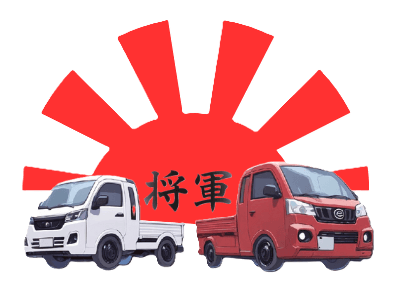Are Kei Trucks Legal In Michigan?
We will examine the legality of kei trucks in Michigan. This will include reviewing national and state regulations, along with the required paperwork.

What Are Kei Trucks?
Kei Trucks Are
Kei trucks are small vehicles created to comply with particular size and engine specifications outlined by Japanese laws. Generally, these trucks are equipped with engines that are less than 660cc, making them easy to operate and fuel-efficient. Although they are compact, kei trucks are recognized for their durability and adaptability, which makes them perfect for a range of tasks such as agriculture, construction, and commercial use.
How to drive Kei trucks in Michigan?
Street Legal Kei Trucks In Michigan
If you own a Kei truck that doesn't meet the 25-year age requirement or if you're facing state rules that have banned the use of mini trucks, there’s some help available. There are legal experts who can assist you in registering your Kei truck in another state, allowing you to get out-of-state license plates. This means you could make your vehicle street-legal without needing to move to that state; the entire process can be managed through the mail. This is possible because 45 states recognize each other's registration laws.

What are the Michigan Regulations?
Registering Kei Trucks in Michigan
Michigan has decided that Kei trucks cannot be driven on public roads through in-state registration with the state.
Especially those that are older than 25 years. Similar to Massachusetts, Michigan is not only banning Kei trucks but also other small cars like the Suzuki Jimny and larger models like the Mitsubishi Delica. Many people find this decision confusing, as it seems that Michigan is having a hard time clearly defining what a "mini truck" really is.
Off-Road Use in Michigan?
Using Kei Trucks Off-Road and for Farming
Kei trucks are compact and lightweight vehicles that are frequently utilized for off-road purposes and specific tasks, particularly in agriculture in Michigan. In rural regions and on private property, regulations governing the use of these trucks are not as strict as those for standard vehicles. This flexibility makes them a favored choice for farmers, ranchers, and companies operating in outdoor environments.

